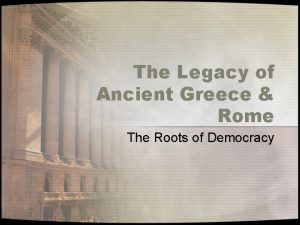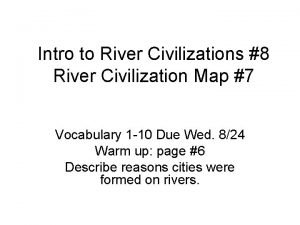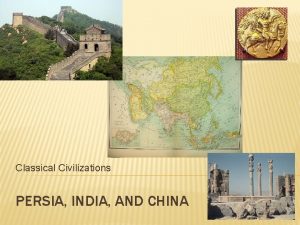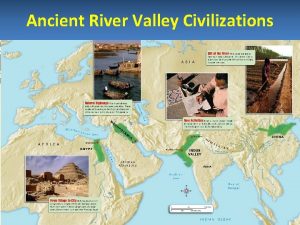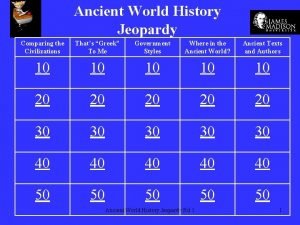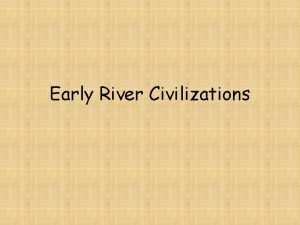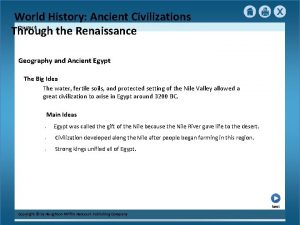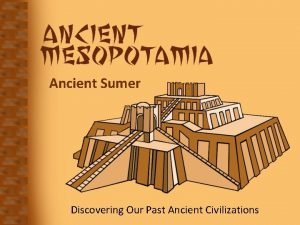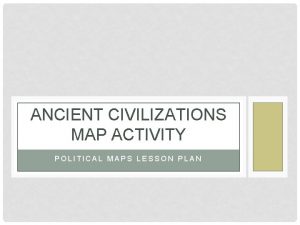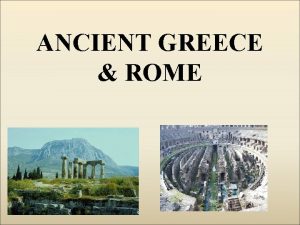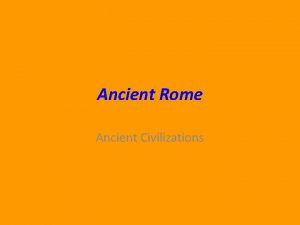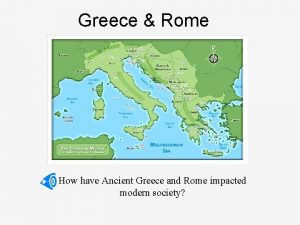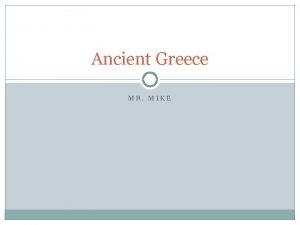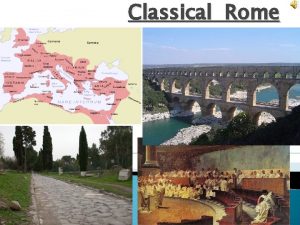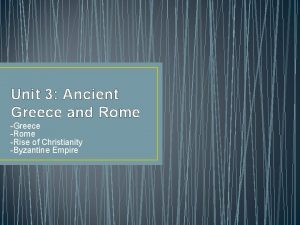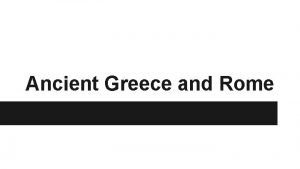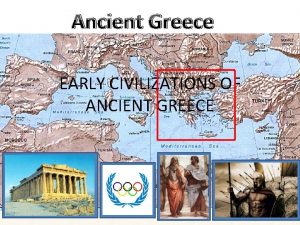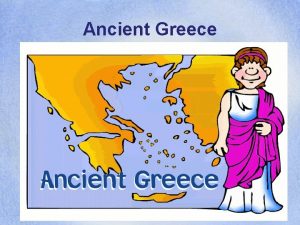Ancient Greece and Rome How have these civilizations










- Slides: 10

Ancient Greece and Rome How have these civilizations impacted the modern world?

People Who Valued the Classics “…it may truly be said that the classical languages are a solid basis for most, and an ornament to all the sciences. ” -Thomas Jefferson “As late as the seventeenth century, the savants and artists of all Europe were so closely united by the bond of a common ideal that cooperation between them was scarcely affected by political events. This unity was further strengthened by the general use of the Latin language. ” -Albert Einstein

Classics and Art History The Renaissance: this term for the cultural movement of the 14 th to 17 th centuries literally means “rebirth. ” That is because the Renaissance period saw a rebirth of Greco-Roman ideas and aesthetics, inspiring Leonardo de Vinci, Michelangelo, Raphael, Petrarch, Erasmus, Galileo, et al. Artist: Sandro Botticelli Year: c. 1486 Type: tempera on canvas Dimensions: 172. 5 cm × 278. 5 cm (67. 9 in × 109. 6 in) Location: Uffizi, Florence

Classics and Architecture Washington, D. C. was designed to impress foreign heads of state, by looking like ancient Rome at the height of its empire. The Harvard Coliseum in Cambridge, Mass.

Classics and Literature Shakespeare used his knowledge of classical literature and history to write numerous plays • Julius Caesar • Antony and Cleopatra • Romeo and Juliet Similarly, modern authors such as J. K. Rowling and Rick Riordan were inspired by ancient mythology and literature to pen the Harry Potter and Percy Jackson series of books

Classics and Politics The U. S. Constitution and Government are based off those of the ancient Roman Republic Executive Branch: President and Vice-President Legislative Branch: Senate and House of Representatives Judicial Branch: Supreme Court That is why the United States is not a democracy, but a democratic republic

Classics and Law Many legal terms still used today are in Latin – – – Habeas corpus Pro bono Bona fide Affidavit Subpoena – – – Ad hoc In loco parentis Mutatis mutandis Non compos mentis Prima facie (Law schools appreciate students who are familiar with Latin)

Classics and Medicine Human anatomy and medical abbreviations are described via Latin terminology • • Orbicularis oculi – muscle that closes the eyelids Orbicularis oris – muscle around the mouth Tibia – shinbone connecting the knee and ankle bones Fibula – calf bone connected to the tibia Hebdomada (Hebdom. ) – medical note meaning “For a week” Linfricandus – medical note meaning “To be rubbed in” Mane et vespere (M. et. v. ) – medical note meaning “Morning and evening” (Medical schools appreciate students who are familiar with Latin)

Classics and Math/Science Pythagoras and Euclid were ancient Greek mathematicians, whose theories and writings quickly became the foundation of mathematics for two thousand years The basic scientific principle that “matter can neither be created nor destroyed” was discovered by ancient Greek scientist-philosophers

Classics and Philosophy Socrates (c. 469 – 399 BCE) Considered the father of modern philosophy and ethics Teacher of Plato (c. 427 – 347 BCE) Established the Academy in Athens and wrote numerous dialogues Teacher of Aristotle (c. 384 – 322 BCE) Established the Lyceum in Athens and wrote the 1 st systematic approach to morality, logic, science, politics, and metaphysics Teacher of Alexander the Great, who went on to conquer 3 continents and establish the city of Alexandria
 Physical education of athens
Physical education of athens The legacy of ancient greece and rome
The legacy of ancient greece and rome Map of river valley civilizations
Map of river valley civilizations Ancient india lesson 1 early civilizations
Ancient india lesson 1 early civilizations What is it
What is it Civilization ppt template
Civilization ppt template Ancient civilizations jeopardy
Ancient civilizations jeopardy Longest river in the world
Longest river in the world Ancient civilizations through the renaissance
Ancient civilizations through the renaissance Discovering our past ancient civilizations
Discovering our past ancient civilizations Four corners of civilization map
Four corners of civilization map

